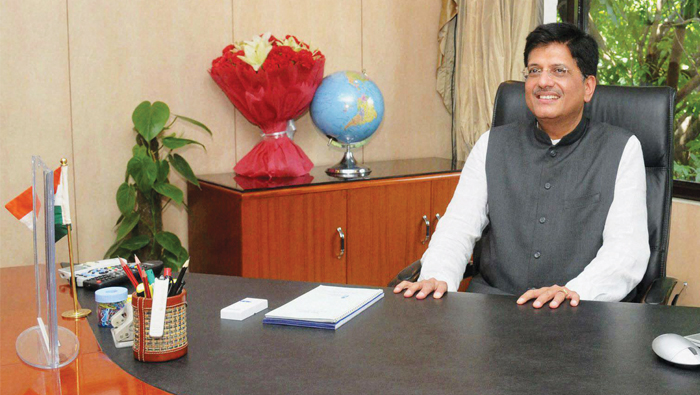
Muscat: Economists and financial analysts in Oman are concerned about the lack of allocation of funds towards schemes for Non Resident Indians in the new budget that was announced by the Indian government for 2019-20.
India’s Ministry of Finance had presented the country’s new budget to the Parliament, and while there have been significant increases in the amount of money allocated to schemes which benefit the poor and the backward sections, including additional funds for centrally sponsored schemes, as well as the welfare of scheduled castes, scheduled tribes and children, NRIs – especially blue-collar workers – are concerned about what the budget holds in store for them.
Piyush Goyal, India’s acting Finance Minister who presented the interim budget told Parliament in his speech, “The last five years have witnessed a wave of next generation structural reforms, which have set the stage for decades of high growth.”
The government expects to spend a total of Rs.27.84 trillion (approximately OMR150 billion) for the year 2019-20, up from Rs.24.57 trillion during the last year. According to data released by India’s Ministry of Finance, the country is expected to have a total revenue of Rs.19.777 trillion (OMR106.5 billion) from tax and non-tax revenue, for the year 2019-2020. In addition, capital receipts will amount to Rs.8.065 trillion (OMR43.44 billion).
Of this, centrally sponsored schemes will receive Rs.13.706 trillion (OMR73.83 billion), while the 2019-20 budget aims to focus investments on agriculture, social welfare, education and health.
However, while there may be no direct provision for blue-collar workers who live and work overseas, Dr CK Anchan, an investment banker in Oman, said the additional funds being allocated for healthcare would help the poor get better care, while the increased funding towards education would enable more people to rise out of poverty and work towards a stable future.
“The fiscal stimulus to small and marginal farmers and tax exemptions for the middle class will lead to more disposable income, which will result in increased consumption,” he told Times of Oman.
However, while Mubeen Khan, a chartered accountant working in the Sultanate, did laud these schemes, he added, “I believe that NRIs deserve waivers and exemptions from custom duties in India for their contribution to the Indian economy. The taxation of real estate transactions by NRIs in India also needs to be liberalised.”
PK Subudhi, general manager for Mustafa Sultan Exchange, hoped blue-collar workers in the Sultanate might benefit from these schemes back home, saying, “This is not a full-fledged budget yet that has been presented to the parliament. As far as NRIs are concerned, there is not normally a special provision for them, but a few things that are declared in India might benefit them when they come home.”
He added, “Blue collar workers are unfortunately really poor and they have come all the way to countries outside India, and they send remittances back home. They may be classified in a certain status under the budget, so maybe they will get something from that, and this unorganised sector now also has a pension provision and other benefits, so this -could also help them.”